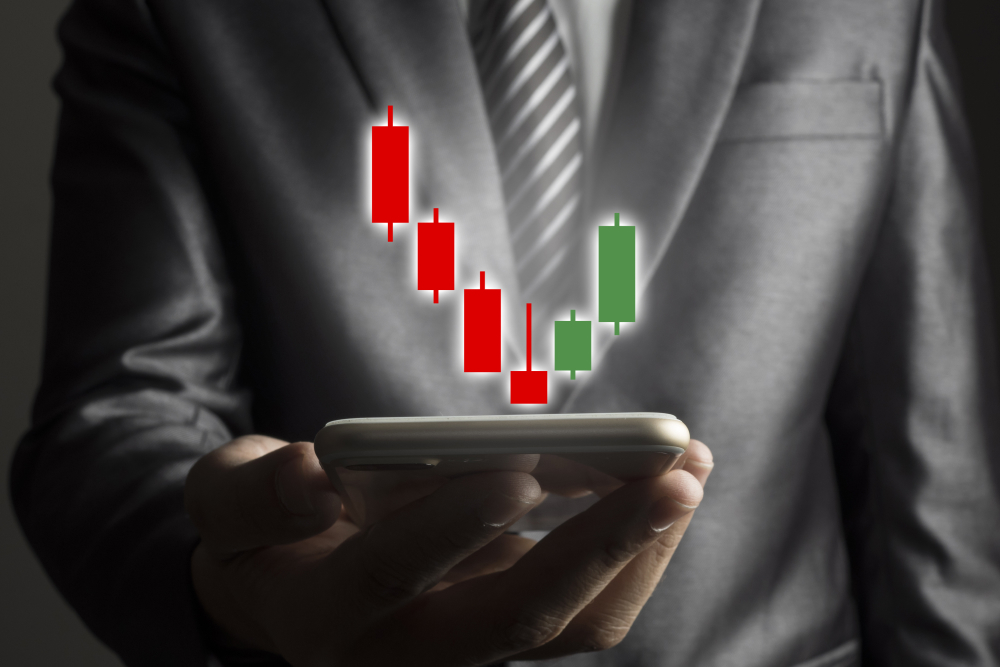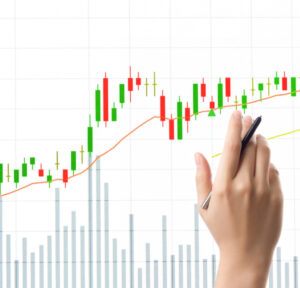What are trading signals?

Opportunities in trading often look like a fake friend; today, they are there, and the next minute, they are gone – appearing and disappearing at will. Trading often resembles a minefield of possibilities, and there is no magic wand to tell you whether your choices are the right ones. Of course, this uncertainty contributes to why trading is so enticing.
Some tools help direct your trading activity even though there is no exact way to predict what the market does; a trade signal is one of them. This article gives you a basic understanding of trading signals and how to maximize them.
Trading signals
Trading signals fall under the logical developments that occur naturally in the financial sector. They serve as a great leveraging tool for traders and investors alike because they streamline one of the most important and challenging tasks a trader has: finding the right trading opportunities at the right time.
A trading signal can be synonymous with an insider tip that alerts a trader on the best pair to trade, where and when to trade, and how long to trade for — based on confirmed indicators on where the price of that pair moves next.
The use of trading signals is universal in nature. It can help a beginner or experts improve their trading skills, profitability, and specific understanding of the working of certain currency pairs.
Trade signals are recommendations that let you know when good trading opportunities present themselves in the foreign exchange, indices, and commodities markets. These recommendations are derived from mathematical algorithms (automated) or human analysis (manual).
Beginner traders may find it helpful to learn new techniques through trading signals, but there is no assurance that these ideas will ultimately be profitable.
Why are they important?
Anyone’s trading activity can be improved by the best trading signals. To begin with, trade signals allow traders to use several market methods. It also enables traders to follow market opportunities of all kinds since there are various technical, fundamental, and sentimental ways of analysing the market.
For example, a technical trader can follow and profit from Forex trade signals from fundamental analysis. Traders may continuously find high-quality, high-probability opportunities across various assets in this way.
Using accurate trade signals largely reduces trading time. Various opportunities are accessible in the foreign exchange market at any given time. The amount of time many retail traders can spend trading is severely constrained by other commitments. This implies that they have few trade opportunities available to them. Trade signals aid traders in making the most of their trading time.
A typical forex signal will offer detailed trading recommendations — entry, stop, and take profit price levels — which the trader executes. This approach allows traders to schedule their trading to take advantage of the finest market possibilities.
Using trade signals allows them to trade while still learning the markets profitably. The signals also decrease their learning curve because as they work to comprehend the reasoning behind any trade recommendations they receive, they come closer to comprehending the logic behind the trading signal.
Furthermore, it is crucial to remember that a trading signal is only as helpful as it is timely in a quick-moving market like Forex. If a trader sees a signal too late, it may no longer be viable.
Signal providers use practical communication channels like SMS, email, and push notifications, to ensure that traders receive pertinent trading signals at the appropriate times. Some traders also install platform add-ons to get their forex signals directly on their platforms.
Become an educated trader. Join and learn to apply new skills>>
How to trade with signals?
- Know your broker: Make sure you find a reputable broker first. Dependable platforms are used by reliable brokers and are crucial for delivering signals in a trustworthy manner.
- Know your provider: Making a good provider is your next step. Although traders who want to employ Forex signal providers have many options, this is actually a more challenging undertaking than it first appears.
- Know your platform:
Furthermore, you should be aware that some trading platforms give great levels of customisation, which can truly make a difference, as not all signal providers will improve your trading experience. Your ability to customise a platform will ensure that you may adapt a trustworthy signal to your investing goals and aims.
- Know your market: Professional forex traders often restrict their trade markets. Being market specific helps increase the profitability of a trade signal.
- Know your risk tolerance: Because of leverage and volatility, it’s possible to lose money when trading forex. Very volatile pairs or asset classes can be very profitable or unprofitable, depending on how well you can handle price fluctuations.
Advantages of trading signals
It can be challenging and may not be appropriate for all types of traders to monitor the market 24 hours a day. Trading signals become helpful at this point since they make trading simpler. You can focus more on the trading techniques and spend less time looking for fresh opportunities if you trust the trade signals you are receiving.
Because traders receive real-time updates on market changes, good trade signals reduce market risk. The likelihood that a trading signal will exhibit a high degree of precision increases if the signal providers are trading specialists.
Additionally, trade signals offer opportunities to broaden and enhance market trading knowledge. By looking at your charts and trading history, you can learn how to choose the right entry point and determine what factors influenced the triggered trade signal.
Bottom line
Trading signals are helpful, but it is crucial to know how to apply them efficiently while trading online. Several guidelines might help decrease the inherent market risks affecting trading signals.
Additionally, it is crucial to refrain from acting on trade signals when highly influential data is released (except the high-impact data is the trading signal). Overall, even while using the greatest signal providers, traders should adhere strictly to their trading plan.

This information is written by Klips. The information is provided for general purposes only and does not consider any personal circumstances or objectives. Before acting on this material, you should consider whether it is suitable for your circumstances and, if necessary, seek professional advice. No representation or warranty is given as to the accuracy or completeness of this information. It does not constitute financial, investment or other advice on which you can rely. Any references to past performance, historical returns, future projections, and statistical forecasts are no guarantee of future returns or future performance. Klips will not be held responsible for any use that may be made of this information and for any consequences that may result from such use. Hence, any person relying on the information on this page does it at their own risk.
Learn

Top AI Companies to Watch: A Deeper Dive
ByAndreea
 3 min.
3 min.Learn

Charting Your Course to Trading Success with Klips
ByAndreea
 3 min.
3 min.Learn

Navigating the ECB’s Monetary Policy with Klips: Empowering Your Trading Strategy
ByAndreea
 3 min.
3 min.Learn

Harness the Power of Dollar-Cost Averaging on Klips Trading Platform Amidst a Bear Market
ByAndreea
 3 min.
3 min.Learn

Blockchain: The Future of Finance?
ByAndreea
 5 min.
5 min.Learn

AMC stock price – What Influences it the most
ByAdmin
 5 min.
5 min.Learn

What are trading signals?
ByAdmin

Trading

3 popular candlestick patterns for forex trading strategy
ByAdmin
 4 min.
4 min.Trading

Learn how simple forex trading is in South Africa
ByAdmin
 5 min.
5 min.Trading

The Warren Buffet of India: Find Out How Rakesh Jhunjhunwala Built His Fortune
ByAdmin
 7 min.
7 min.

